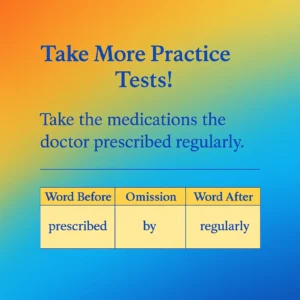Reported Speech Class 10 – Rules, Examples & Exercises
Reported Speech , also know a Indirect Speech , be an important topic in CBSE Class 10 grammar . It help student report what someone say without quote their exact word . Let ’ s explore all the grammar rule , example , and exercise you need to ace this topic .
🔍 What is Reported Speech?
When we repeat someone’s words, we use either:
- Direct Speech – quoting the exact words with quotation marks.
- Indirect (Reported) Speech – conveying the message without quoting.
📌 Examples:
Direct Speech:
He said, “I am going to school.”
Reported Speech:
He said that he was going to school.
🧠 Key Concepts
- Reporting Verb: The verb used to report (e.g., said, told, asked).
- Reported Clause: The part inside quotes (for direct speech) or the part being reported.
🔁 Rules for Changing Direct to Indirect Speech
🎯 1. Change of Pronouns
Pronouns change based on:
- The subject of the reporting verb
- The object of the reported clause
| Direct | Indirect |
|---|---|
| I → He/She | |
| You → I/We/They | |
| We → They | |
| My → His/Her | |
| Your → My/Our |
🧾 Example:
Direct: She said, “I love my dog.”
Indirect: She said that she loved her dog.
🎯 2. Change of Tenses
🧭 When the reporting verb is in the past, the verb in the reported speech usually moves one step back.
| Direct Speech | Indirect Speech |
|---|---|
| Present Simple → Past Simple | |
| Present Continuous → Past Continuous | |
| Present Perfect → Past Perfect | |
| Past Simple → Past Perfect | |
| Past Perfect → Past Perfect (no change) | |
| Future → Would/Shall → Should |
🧾 Examples:
- Direct: He said, “I eat fruits.”
Indirect: He said that he ate fruits. - Direct: She said, “I am reading.”
Indirect: She said that she was reading. - Direct: They said, “We have won.”
Indirect: They said that they had won.
🎯 3. Change of Time & Place Words
| Direct | Indirect |
|---|---|
| today → that day | |
| tomorrow → the next day | |
| yesterday → the previous day | |
| now → then | |
| here → there | |
| ago → before | |
| this → that | |
| these → those |
🧾 Example:
Direct: She said, “I will come tomorrow.”
Indirect: She said that she would come the next day.
🔄 Reporting Different Types of Sentences
🗣️ 1. Statements (Assertive Sentences)
Use ‘that’ to connect.
Change pronouns, tenses, time/place words.
Direct: He said, “I am happy.”
Indirect: He said that he was happy.
❓ 2. Yes/No Questions
Use if/whether (no question mark in indirect speech).
Direct: She asked, “Do you like ice cream?”
Indirect: She asked if I liked ice cream.
🕵️♂️ 3. Wh- Questions
Keep the Wh-word (what, why, where, when, how, who, etc.)
Change tense, pronoun, structure (no question mark).
Direct: He asked, “Where are you going?”
Indirect: He asked where I was going.
🧾 4. Imperative Sentences (Commands, Requests, Advice)
Use:
- to + verb for commands/requests
- not to + verb for negative commands
- asked/told/ordered/advised/requested depending on tone
Direct: She said, “Open the window.”
Indirect: She told me to open the window.
Direct: He said, “Don’t talk.”
Indirect: He told me not to talk.
Direct: The doctor said, “Take rest.”
Indirect: The doctor advised me to take rest.
🥳 5. Exclamatory Sentences
Use reporting verbs like exclaimed with joy, sorrow, surprise etc.
Direct: She said, “What a beautiful painting!”
Indirect: She exclaimed with admiration that it was a beautiful painting.
📝 Practice Exercises
✍️ Convert the following into Indirect Speech:
- He said, “I am learning Spanish.”
- She said, “I will call you tomorrow.”
- They said, “We have finished our homework.”
- I said to her, “Are you feeling better?”
- The teacher said to the student, “Don’t be late.”
- He asked, “Where do you live?”
- She said, “Wow! That’s amazing!”
- The doctor said, “Take your medicine twice a day.”
- John said, “I saw her yesterday.”
- The child said, “I want a toy.”
✅ Answers:
- He said that he was learning Spanish.
- She said that she would call me the next day.
- They said that they had finished their homework.
- I asked her if she was feeling better.
- The teacher told the student not to be late.
- He asked where I lived.
- She exclaimed with surprise that it was amazing.
- The doctor advised me to take my medicine twice a day.
- John said that he had seen her the previous day.
- The child said that he wanted a toy.
📌 Tips to Remember
- Always identify the type of sentence first (statement, question, order).
- Check the tense of the reporting verb.
- Apply proper tense shifting rules.
- Change pronouns and time/place references.
- Remove quotation marks and use that, if, to as connectors.

I really like your site!